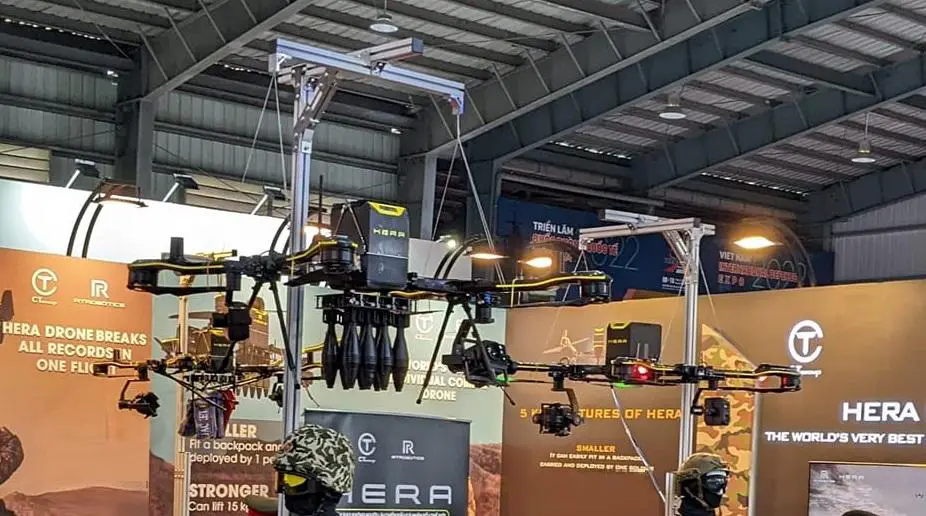Vietnamese unmanned systems company RT Robotics (a subsidiary of Vietnamese conglomerate CT Group) has unveiled an unmanned aerial vehicle (UAV) system that is capable of dropping up to nine grenades per sortie at the Vietnam International Defense Exhibition (VIDEX) 2022. The unmanned aerial vehicle system, which has been dubbed as the Hera UAV, is man-portable and propelled by four rotor-wings. The Hera UAV has been fully developed in-country by Vietnamese engineers (composite specialists, aerospace engineers, mechanical engineers, electronics engineers, firmware engineers, software engineers, and AI engineers).
The Hera UAV is relatively silent and can be deployed almost clandestinely against enemy positions such as fortified forward bases and vehicles. The unmanned aerial vehicle system is foldable and can be carried by a single personnel via a custom-designed backpack. It can be unfolded and deployed in under a minute. When folded, the unmanned aerial vehicle system measures 56×35×23 cm, and when unfolded it measures 105×114×62 cm. It has a maximum take-off weight of 30.5 kg. Compared to similar UAVs manufactured by Israel, US, and NATO countries, the Hera is the most capable in terms of the number of grenades that can be carried.
The Hera UAV also boasts an impressive runtime, with one charge of its 44.4-volt/29,400-mAh lithium battery reportedly allowing it to fly with no payload for 56 minutes. That figure drops to a still-decent 46 minutes if it’s carrying a 5.7-lb (2.6-kg) Phase One P3 gimbal camera package. The cargo can take the form of four separate gimbal-mounted cameras or other sensors – for instance, the drone can be equipped with visual, thermal and corona cameras along with a LiDAR unit, all at the same time. Additionally, because the Hera features retractable landing gear, the cameras can pan 360 degrees without getting any part of the copter in their shot.
















